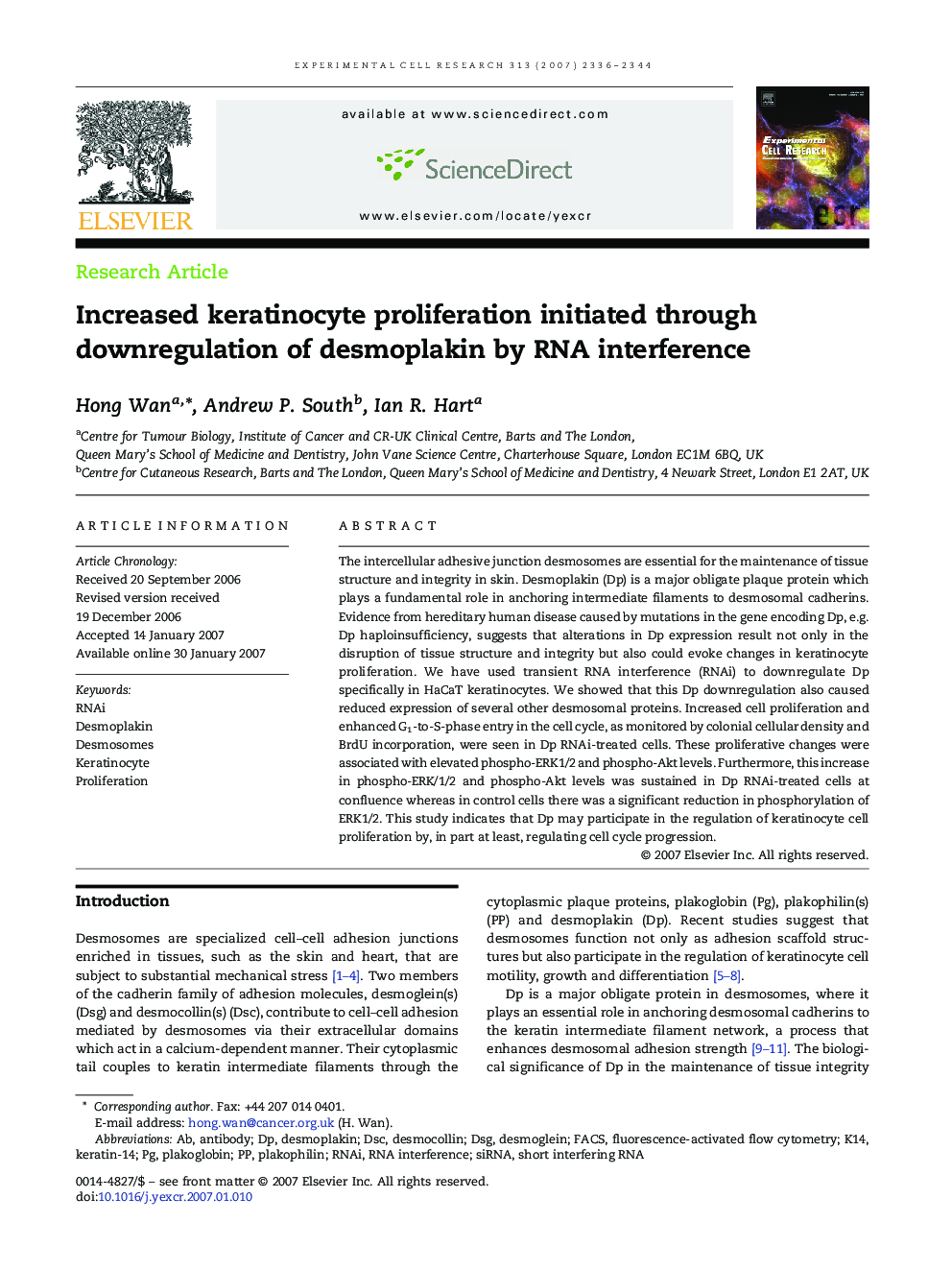| Article ID | Journal | Published Year | Pages | File Type |
|---|---|---|---|---|
| 2131823 | Experimental Cell Research | 2007 | 9 Pages |
The intercellular adhesive junction desmosomes are essential for the maintenance of tissue structure and integrity in skin. Desmoplakin (Dp) is a major obligate plaque protein which plays a fundamental role in anchoring intermediate filaments to desmosomal cadherins. Evidence from hereditary human disease caused by mutations in the gene encoding Dp, e.g. Dp haploinsufficiency, suggests that alterations in Dp expression result not only in the disruption of tissue structure and integrity but also could evoke changes in keratinocyte proliferation. We have used transient RNA interference (RNAi) to downregulate Dp specifically in HaCaT keratinocytes. We showed that this Dp downregulation also caused reduced expression of several other desmosomal proteins. Increased cell proliferation and enhanced G1-to-S-phase entry in the cell cycle, as monitored by colonial cellular density and BrdU incorporation, were seen in Dp RNAi-treated cells. These proliferative changes were associated with elevated phospho-ERK1/2 and phospho-Akt levels. Furthermore, this increase in phospho-ERK/1/2 and phospho-Akt levels was sustained in Dp RNAi-treated cells at confluence whereas in control cells there was a significant reduction in phosphorylation of ERK1/2. This study indicates that Dp may participate in the regulation of keratinocyte cell proliferation by, in part at least, regulating cell cycle progression.
